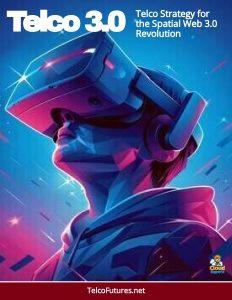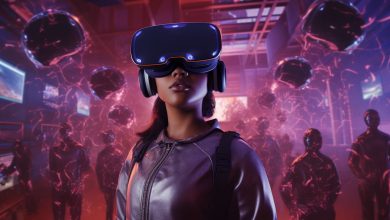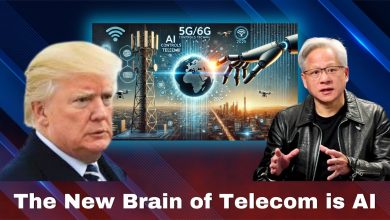What Could the Integration of 5G and Blockchain Mean for In-Game Economies?
Imagine a gaming world where every loot drop, every virtual storefront, and every hard-earned victory carries real-world weight, thanks to the fusion of 5G’s relentless connectivity and blockchain’s unshakeable trust. This isn’t just an upgrade to in-game economies—it’s a reinvention, turning pixels into power and playtime into profit.
 Imagine a gaming world where every loot drop, every virtual storefront, and every hard-earned victory carries real-world weight, thanks to the fusion of 5G’s relentless connectivity and blockchain’s unshakeable trust.
Imagine a gaming world where every loot drop, every virtual storefront, and every hard-earned victory carries real-world weight, thanks to the fusion of 5G’s relentless connectivity and blockchain’s unshakeable trust.
This isn’t just an upgrade to in-game economies—it’s a reinvention, turning pixels into power and playtime into profit.
This fusion promises in-game economies that rival real-world markets in complexity and trust. With 5G’s high-speed uplinks and low latency, blockchain transactions—like buying a rare armor set or selling a virtual plot—happen in real time, no delays.
NFT Digital Assets
Step into a gaming universe where every sword, spaceship, or skin you own is truly yours—not just pixels on a server, but digital assets secured by blockchain, traded and scaled by 5G’s lightning-fast networks.
Players craft items in a game, mint them as NFTs (non-fungible tokens) on a blockchain, and trade them across platforms or even convert earnings to cryptocurrency, all synced instantly via 5G’s edge computing. Imagine a global auction house where millions bid on a legendary weapon, with 5G handling the load and blockchain ensuring provenance and ownership are tamper-proof.
AI ties it together, analyzing player behavior to balance supply and demand—say, spawning fewer dragons if their scales flood the market. Developers use 5G’s agility to push updates that tweak these economies on the fly, while blockchain’s transparency prevents cheating or duplication. For players, it’s empowerment: your time and skill translate to tangible value, not just leaderboard bragging rights.
Beyond games, this could spill into virtual worlds like the metaverse, where 5G and blockchain enable persistent, player-driven economies—think virtual real estate or concert tickets with real-world worth. It’s a future where gaming isn’t just play; it’s a marketplace, a career, a digital frontier, all running on a network that never blinks.
With 5G’s gigabit speeds and near-zero latency, transactions in these virtual markets happen at the snap of a finger. You snag a rare sword in a raid, and within seconds, it’s tokenized as an NFT on a blockchain—unique, verifiable, and yours to keep or sell. No clunky delays, no server hiccups; 5G’s edge computing ensures the deal’s done before your victory dance ends. Players trade across games or platforms, swapping a spaceship from one universe for a dragon in another, all logged securely on a decentralized ledger.
Blockchain brings the trust: no shady devs can duplicate your gear, and no central authority can wipe your inventory with a patch. Every item’s history—forged by a master smith in-game or won in a 100-player melee—is etched in digital stone. 5G amplifies this by connecting millions of players to these markets simultaneously, handling bids, crafts, and sales in real time. Picture a bustling bazaar: a teen in Jakarta auctions a potion, a pro in Berlin counters with crypto, and a collector in Cape Town snags it—all in under a second, powered by 5G’s network slicing.
The economy grows wilder. Players form guilds that function like startups, pooling resources to craft legendary gear, then splitting profits via smart contracts. AI, riding 5G’s backbone, monitors supply—capping overfarmed resources to keep value stable—while developers tweak rules on the fly, their updates deployed instantly. Some games ditch microtransactions entirely; why sell loot boxes when players run the show, earning real cash from their grind? A kid’s weekend hustle could fund their college, tracked transparently by blockchain.
This spills beyond games. In-game currencies, pegged to crypto, buy real-world goods—imagine trading your wizard gold for a pizza, delivered hot as 5G pings the order. Brands jump in, sponsoring tournaments with blockchain-verified prizes, while tax agencies scramble to catch up. It’s a digital Wild West: chaotic, liberating, and lucrative, where 5G’s speed meets blockchain’s permanence.
The catch? Wealth gaps could mirror reality—veterans dominate while newbies scrape by. But the promise is clear: in-game economies become living systems, player-driven and globally linked, where every click carries consequence.



